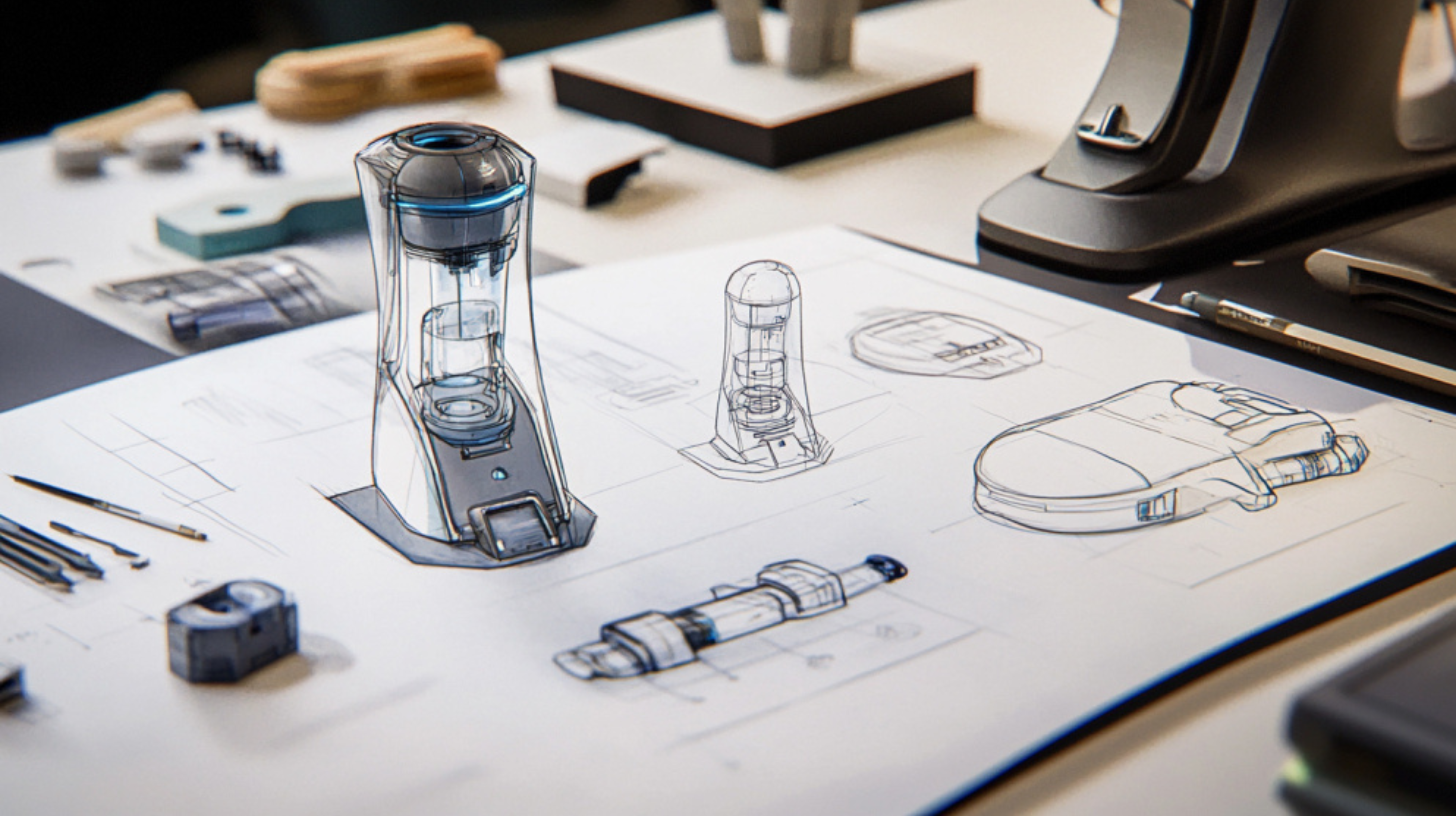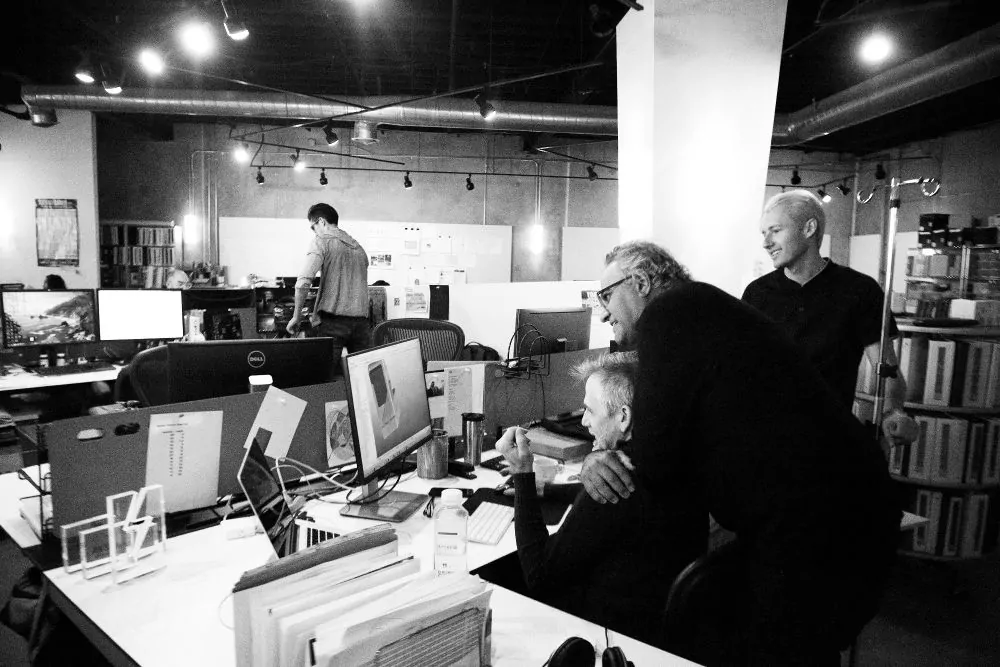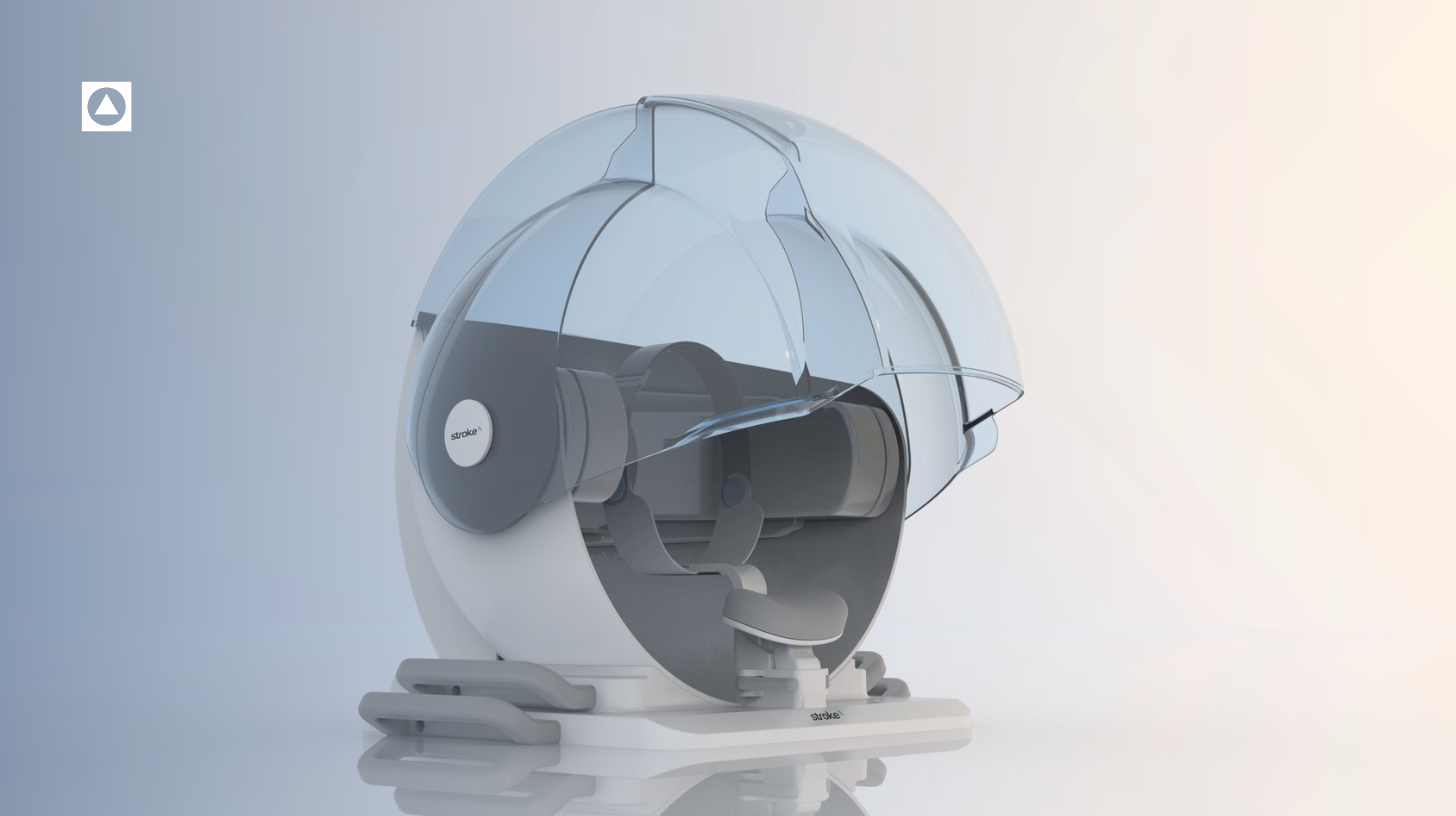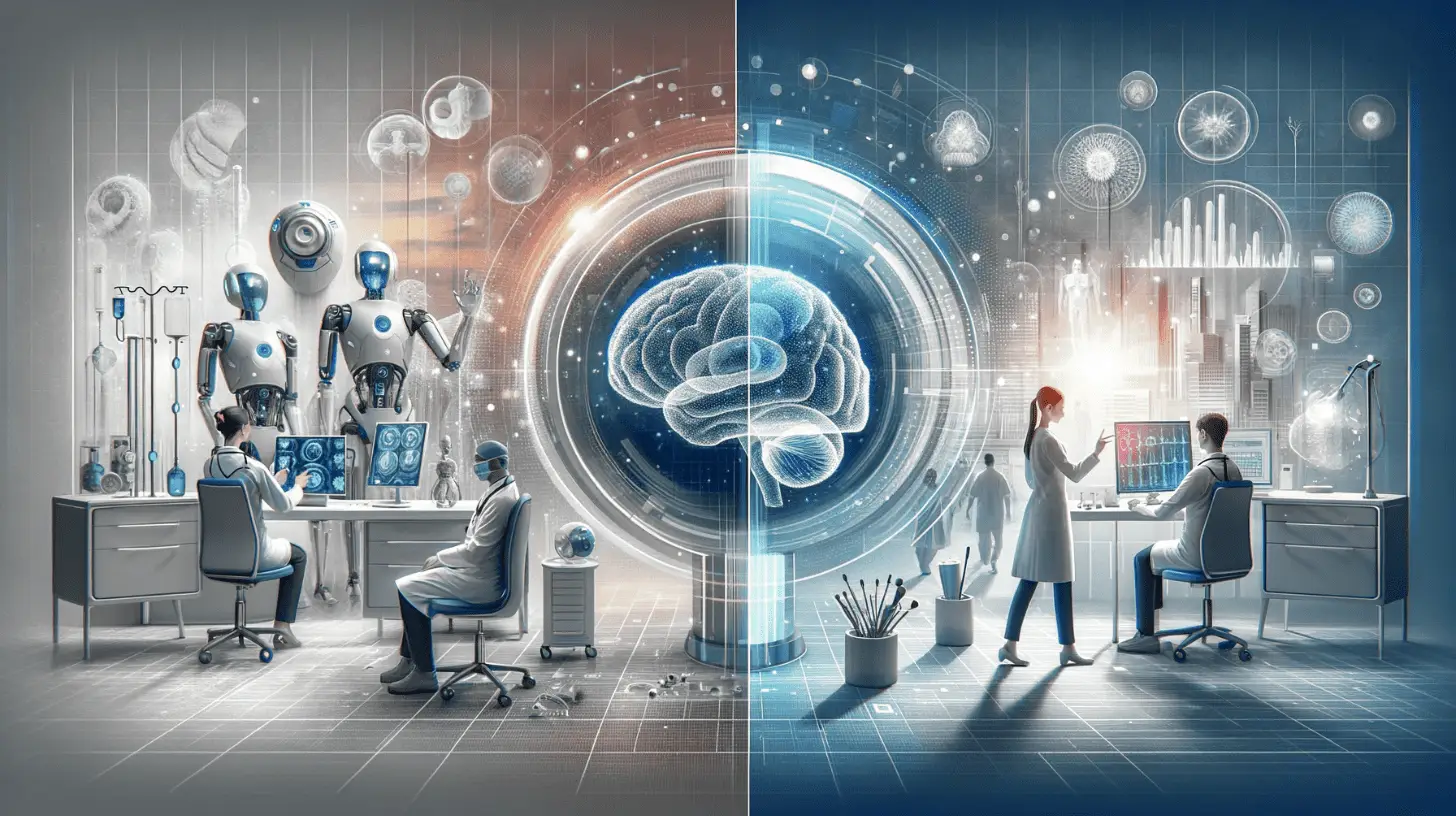In the first part of our three-part series, we talk with our CEO and Founder, Ravi Sawhney, and our Creative Director, Lance Hussey, to address the critical question:
How can we use AI to avoid past mistakes and create a future where technology improves human well-being?
Understanding the Current State of AI
The current state of artificial intelligence is a topic of both excitement and caution. AI is still in its early stages, and while it shows great promise, we have yet to realize its full capabilities.
Lance Hussey notes, “Everyone knows it’s very powerful, but there’s still a long way to go in terms of its full capabilities. It’s exciting to see it finally happening. I think it’s a renaissance going forward in terms of the value it will add and how much it’s going to change our lives.”
Ravi and Lance believe that AI is primarily a tool. They consider it an assistive technology that enhances our capabilities instead of replacing them. In product design, we can use AI to enhance both the creative and functional aspects. This approach ensures that AI supports our work rather than autonomously dictating outcomes.
The Role of AI in Product Design
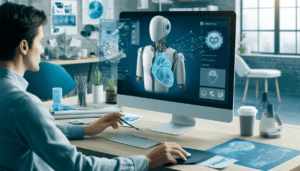 AI’s application in product design, especially in healthcare and medtech, is multifaceted. It acts as a resource bank, helping designers avoid past mistakes by analyzing historical data and identifying patterns for better design decisions.
AI’s application in product design, especially in healthcare and medtech, is multifaceted. It acts as a resource bank, helping designers avoid past mistakes by analyzing historical data and identifying patterns for better design decisions.
AI can assist in various stages of healthcare product development, from user interface (UI) and user experience (UX) design to the creation of physical products and branding strategies. However, the human touch remains irreplaceable, particularly when it comes to the nuanced and ergonomic aspects of medical device design.
AI in Healthcare and Medtech
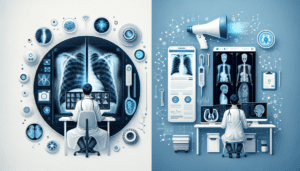 When applied to healthcare and medtech, AI has the potential to revolutionize the industry. AI’s ability to process vast amounts of medical data and provide insights is unparalleled. For instance, AI in medical diagnostics can help in diagnosing conditions by analyzing medical images more accurately than the human eye. It can also assist in personalizing treatment plans by considering a patient’s medical history, lifestyle, and genetic information. These AI applications in medtech represent significant healthcare innovation, leading to more effective and efficient healthcare solutions.
When applied to healthcare and medtech, AI has the potential to revolutionize the industry. AI’s ability to process vast amounts of medical data and provide insights is unparalleled. For instance, AI in medical diagnostics can help in diagnosing conditions by analyzing medical images more accurately than the human eye. It can also assist in personalizing treatment plans by considering a patient’s medical history, lifestyle, and genetic information. These AI applications in medtech represent significant healthcare innovation, leading to more effective and efficient healthcare solutions.
Potential Benefits of AI in Healthcare
The benefits of AI in healthcare are numerous. One of the most significant advantages is its ability to streamline the diagnostic process. By leveraging AI, healthcare professionals can diagnose diseases earlier and with greater accuracy, leading to better patient outcomes. Additionally, AI-driven healthcare solutions can enhance the efficiency of healthcare systems by optimizing resource allocation, reducing waiting times, and improving the overall patient experience.
Ethical Considerations and Challenges
 Despite its potential, the integration of AI in healthcare and medtech is not without challenges.We must address ethical considerations, such as data privacy and the potential for bias in AI algorithms.
Despite its potential, the integration of AI in healthcare and medtech is not without challenges.We must address ethical considerations, such as data privacy and the potential for bias in AI algorithms.
Ensuring that AI systems are transparent and accountable is crucial to gaining public trust. Moreover, the implementation of AI should complement, not replace, the expertise of healthcare professionals. The human element remains critical in providing compassionate and holistic care.
Looking to the Future
The future of healthcare with AI in medtech is bright, but it requires careful navigation. As AI technology continues to evolve, its integration into product design and healthcare will likely become more seamless, aligning with emerging healthcare technology trends. The key to successful implementation lies in collaboration between AI developers, healthcare professionals, and patients. By working together, we can harness the full potential of AI to create innovative medical products and solutions that enhance human well-being.
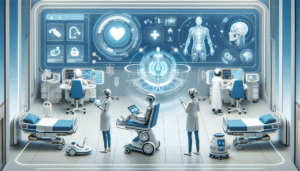 Artificial intelligence holds immense promise in transforming healthcare and medtech product design. While still in its infancy, AI is beginning to show its potential in improving diagnostic accuracy, personalizing treatment plans, and optimizing healthcare systems. However, it is essential to address ethical considerations and ensure that AI complements the expertise of healthcare professionals. By embracing AI as a tool and leveraging its capabilities, we can pave the way for a future where technology enhances human well-being and creates a healthier, more efficient world.
Artificial intelligence holds immense promise in transforming healthcare and medtech product design. While still in its infancy, AI is beginning to show its potential in improving diagnostic accuracy, personalizing treatment plans, and optimizing healthcare systems. However, it is essential to address ethical considerations and ensure that AI complements the expertise of healthcare professionals. By embracing AI as a tool and leveraging its capabilities, we can pave the way for a future where technology enhances human well-being and creates a healthier, more efficient world.

